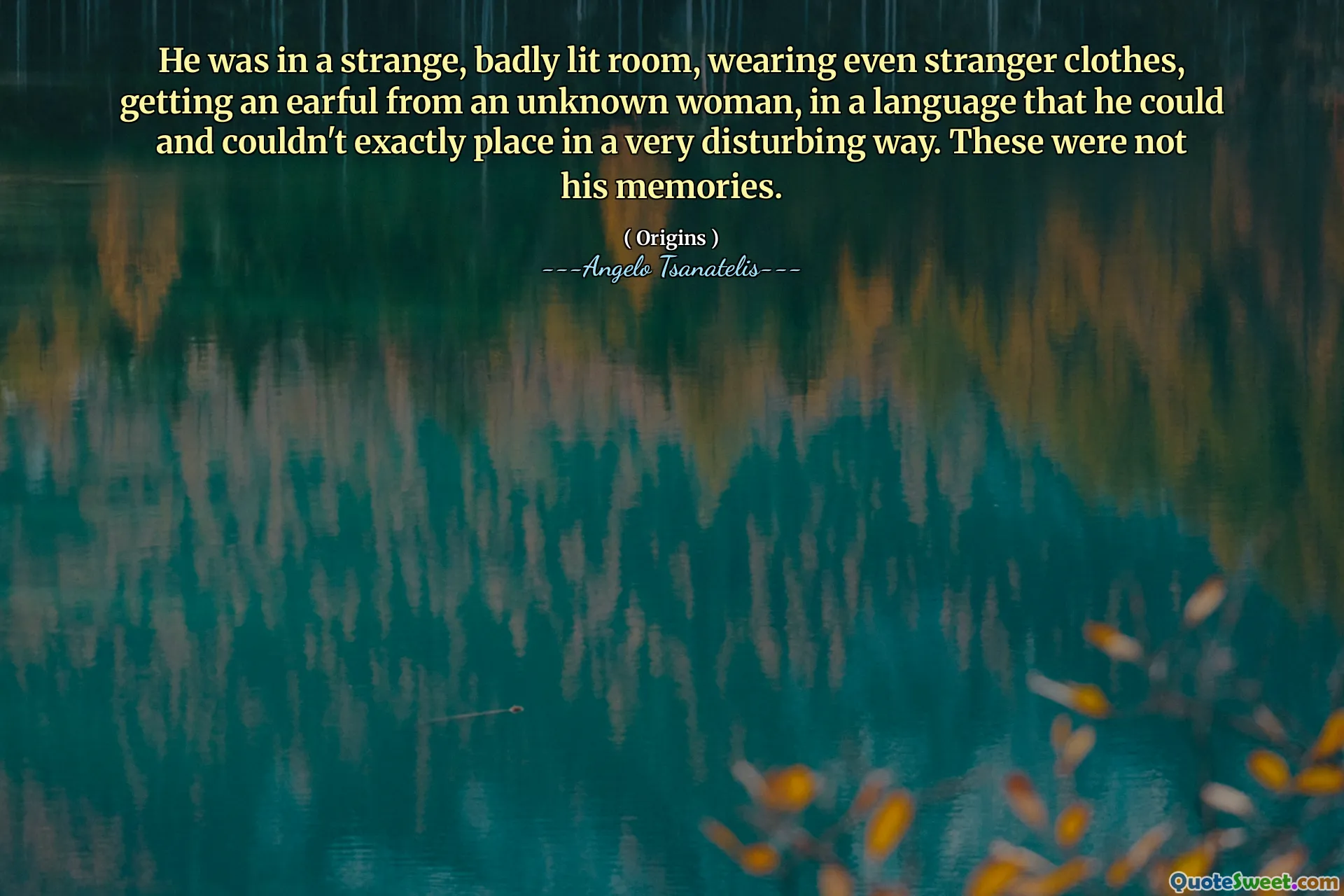
He was in a strange, badly lit room, wearing even stranger clothes, getting an earful from an unknown woman, in a language that he could and couldn't exactly place in a very disturbing way. These were not his memories.
This quote evokes a deep and unsettling experience of disorientation and alienation. The imagery of a "strange, badly lit room" and "even stranger clothes" immediately signals that the protagonist is removed from their comfort zone, thrust into an environment that is foreign and possibly threatening. The element of receiving an "earful" from an unknown woman in a language that is partly familiar yet elusive adds to the psychological tension and confusion. This juxtaposition of recognition and unfamiliarity hints at a fragmented sense of self or a disconnection from reality. It prompts questions about identity and consciousness, especially because the protagonist recognizes the memories but knows they are not his own. It could imply a scenario involving memory embedding, dreaming, or alternate realities, themes that explore the boundaries of self-awareness and memory ownership. The disturbing nature of these "not his memories" suggests an invasion or loss of self, highlighting how integral memories are to personal identity. Consequently, this quote encourages a reflection on how memory shapes reality and identity, and how distortion in the perception of memory can lead to existential unease. It resonates with themes often found in psychological thrillers or speculative fiction, exploring the fragility and permeability of human consciousness. The vivid sense of confusion and intrusion may also symbolize the fear of losing control or the anxiety of encountering unknown parts of one’s psyche or past. Ultimately, it’s a compelling invitation to delve into the complexities of human cognition, memory, and the narrative construction of self.




